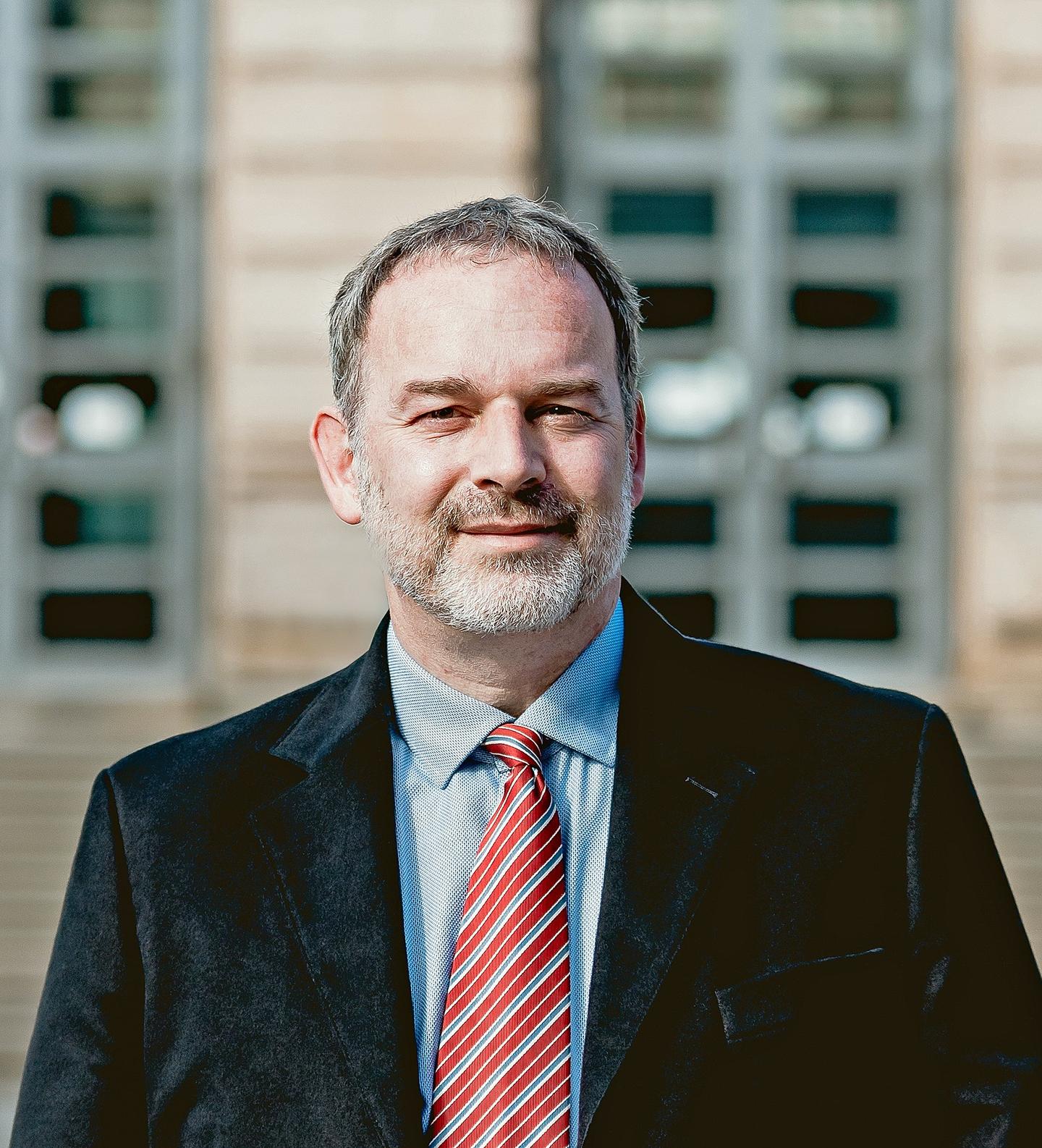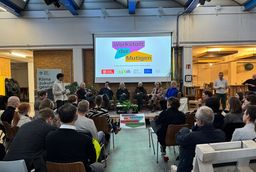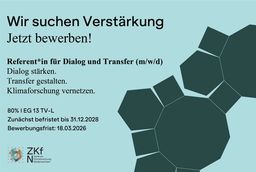
Prof. Krafczyk, since 2024 you have been the full-time Vice President for Digital Transformation and Sustainability at Technische Universität Braunschweig. How important is sustainability in university research and teaching at the moment?
The concept of sustainability has been playing an important role, at least implicitly, in many scientific disciplines for a long time. In recent years, however, many research initiatives have begun to address the topic more aggressively and explicitly. University research is an essential pillar for developing conceptual and methodological foundations for how a sustainable transformation of our lifestyle can succeed at the individual, regional, national and global level. The three classic attributes of sustainability (ecological, economic and social) cannot be thought of and developed independently of each other, which means that inter- and transdisciplinary research is particularly necessary to work out the complex interrelationships of the different dimensions.
The young generation of students and scientists is very aware of the challenges posed by the failures of their parents' generation. Accordingly, high expectations are also articulated to the teachers of a university to explicitly refer to what the respective disciplines can contribute to the global challenges in the transfer of knowledge. A university that does not know how to meet these requirements will have to accept considerable disadvantages in its development potential compared to others that put the topic of sustainability high on their agenda in its performance dimensions and thus.
What does it mean for a vice president to be responsible for the sustainability transformation of an entire university?
Even though sustainability is formally assigned to my department, we have determined in our strategic orientation that sustainability should act as an essential structuring motif in all university performance and cross-sectional dimensions. Therefore, all members of the presidential board have consciously taken on the responsibility of shaping sustainability in their respective areas of responsibility. Of course, I try to provide support wherever the topic comes up explicitly and to provide impetus in the sense of sustainable design. This allows me to contribute to sustainable development at TU Braunschweig in a relatively large number of areas without causing conflicts of responsibility. Similar conditions apply, for example, to my role as the university's climate protection officer, where the main control options are shaped together with my colleague Dietmar Smyrek, who is responsible for infrastructure [Editor's note: full-time Vice President for Human Resources, Finance and Infrastructure at TU Braunschweig], and the business units affiliated with him.
Both digitalization and sustainability are forward-looking topics. What impetus would you like to provide here?
In the context of digitization, there are a number of topics, of which IT and information security will certainly take a leading position for the foreseeable future. Here, we must succeed in protecting the university as a place of open exchange with a correspondingly high level of resilience against external IT attacks. In addition, I would like to help establish the TU as a driver of innovation in the field of artificial intelligence. An exciting intersection of sustainability and digitalization is the area of green IT, which aims to realize an ecosystem of hardware and software that is as powerful as possible with the smallest possible energy footprint.
As Vice President for Digital Transformation and Sustainability, the ZKfN is assigned to your department. What priorities and milestones do you see for the development of the ZKfN in the coming years?
After conducting the first two rounds of calls for proposals for the future labs, the ZKfN now has the important task of supporting the approved projects in implementing their ambitious research programs through a variety of activities and developing a support system. An important part of this support will be to communicate the research results developed in the labs to industry, society, and politics through appropriate communication and dissemination activities. In addition, the office promotes communication between the future labs and with the MWK as the funding body. Furthermore, the office will develop ideas for financing models for climate (impact) research in Lower Saxony that could be designed to extend beyond the current funding period.
The first Climate Future Labs at the ZKfN will soon start their work. What are your hopes for Lower Saxony in terms of climate and climate impact research?
On the one hand, I hope that the funded future labs will be able to implement their ambitious research plans to the greatest extent possible. In addition, I am counting on the consortia to succeed in tapping further sources of financing for future projects during the funding phase, so that a continuous expansion of climate (impact) research in Lower Saxony is made possible. Of course, the motto “Do good and talk about it” also applies. In this sense, I hope that the future labs will also visibly carry their important work into society, so that it becomes clearer that Lower Saxony is playing an important role in the field of sustainability-related transformation.
Thank you for the interview.
*The interview was conducted in November 2024.
More Posts
All
Taking a holistic approach to climate adaptation in cities
Interview with UMEX-HOPE speaker Prof. Dr. Björn Maronga
7 min. Reading time
Big visions, but quick small steps
Social sustainability arises when different actors take responsibility, act together, and combine big visions with concrete, small steps.
4 min. Reading time
Job opening at the ZKfN
The ZKfN is looking for a dialogue and transfer officer to strengthen the exchange between science and society in climate and climate research in Lower Saxony.
1 min. Reading time